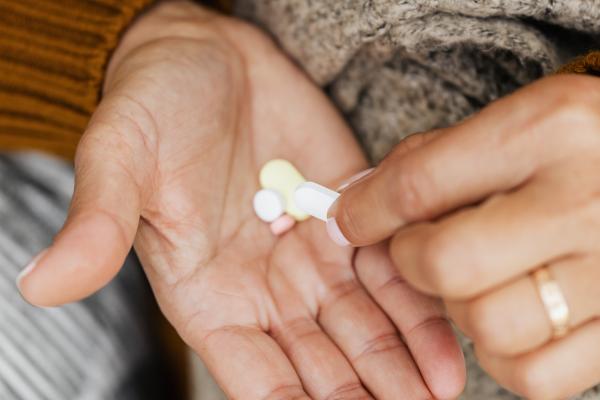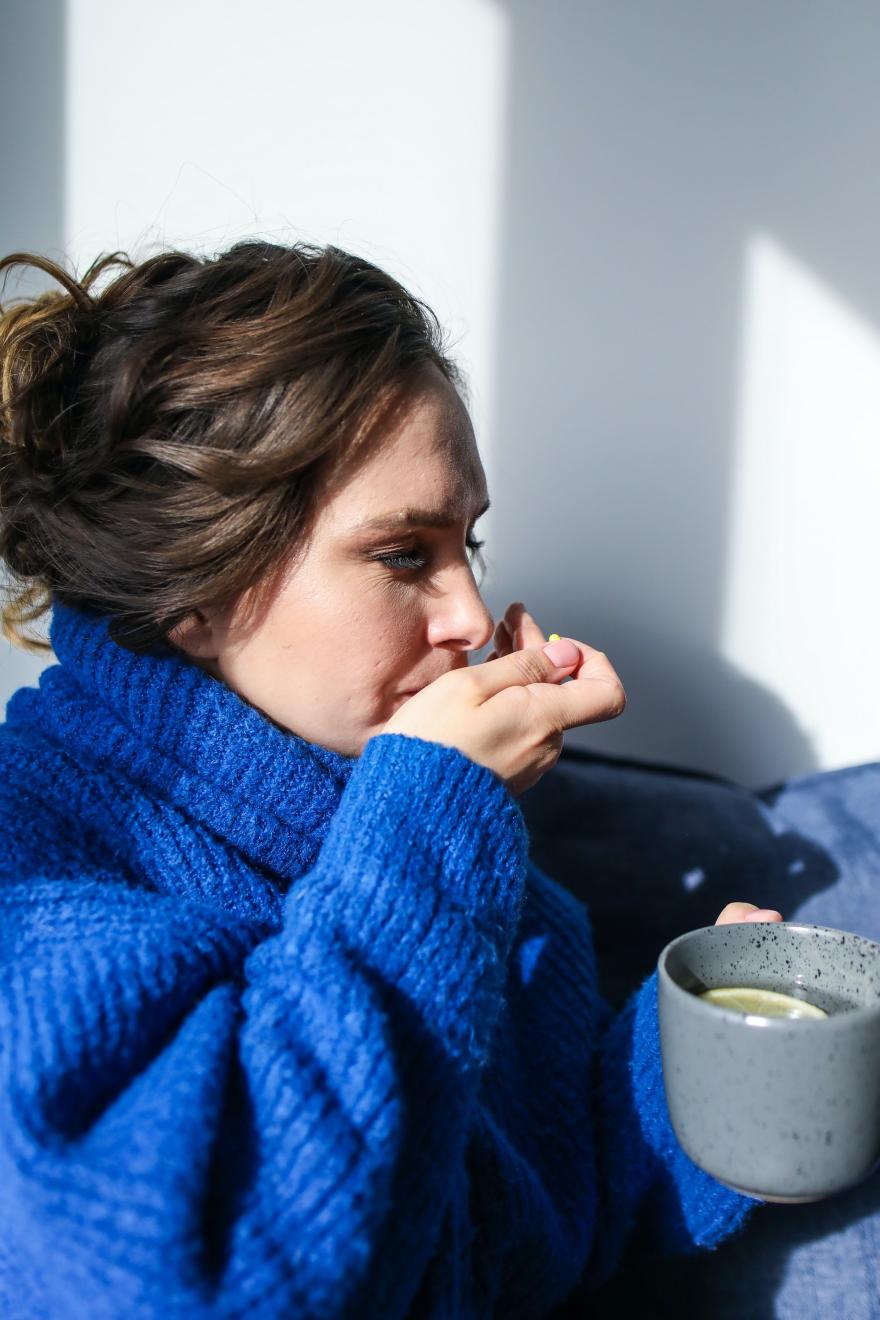Stimulants
Stimulant drugs stimulate your brain activity. Your alertness and ability to concentrate are temporarily increased.
Due to a lack of preparation during study leave, I took my younger brother's Rilatine during my exams, which made it very difficult for me to relax and sleep well.

Did you know?
Stimulants are used for the medical treatment of ADHD and narcolepsy. During exam periods, up to 4% of students take stimulants to improve academic performance or energy levels. This non-medical use can lead to serious health problems and dependence. Therefore, never use the medication on your own initiative and never hand it out. Your own treatment and dose can be a danger to others.
Medical use
What are stimulants?
Medications such as modafinil (Provigil®) and methylphenidate (Rilatine® or Concerta®) are used to treat ADHD and narcolepsy, often in combination with psychological treatment. They do not cure the disorder, but suppress the symptoms.
This medication can only be obtained on prescription and may only be administered by a qualified professional, such as a psychiatrist. The latter regularly monitors the (minimum) dose, the impact on symptoms and any undesirable side effects.
What do stimulants do to your body?
People with ADHD have difficulty concentrating and are easily distracted. People with ADHD have difficulty concentrating and are easily distracted. ADHD medication, such as Rilatine (also known as Ritalin), influences the transfer of information in the brain and has positive effects on your attention span and on the control of your behaviour. As a result, you can concentrate better and you are less distracted. If you have narcolepsy, the medication suppresses sleep attacks. The effects are quickly noticeable after intake.
Side effects
The medication may cause side effects such as poor sleep, stomach pain, nausea, headaches, palpitations, nervousness and loss of appetite. Once these side effects have worn off you may feel extra tired and even lethargic, which may tempt you to take the medication again. If you take the medicine on prescription, the risk of dependency is small.
Non-medical use: not without risk
Stimulant drugs, such as Rilatine, are increasingly taken by people who do not have ADHD or narcolepsy – as a party drug and by students to increase their academic performance.
Students often obtain the medication for free through family, friends or acquaintances who have a prescription for it.
Non-medical use means the effects of ingestion are much more reminiscent of amphetamines: you feel stimulated and invigorated. Your muscles tighten, and you feel energetic, sharp and alert.
You are at greater risk of overdosing, which can lead to symptoms of nausea, vomiting, headaches, palpitations, irritability, anxiety and tremors. In rare cases, it also leads to more serious complications such as blackouts, hallucinations and psychoses.
Furthermore, you run a real risk of developing an addiction. If you use less medication or stop completely after a period of excessive use, you may experience withdrawal symptoms such as fatigue, nervousness and poor sleep.
Tips for more energy
Are you tired or do you have trouble concentrating while studying? The best guarantees for getting through the day (or night) in an optimal way are:
- enough sleep;
- regular exercise;
- drinking water;
- having a healthy and balanced diet;
- taking short (power) naps.
Getting started
The online self-help programme Healthy Lifestyle teaches you to build a healthy lifestyle and feel better about yourself. The programme focuses on varied eating and fun exercise. Once you have completed the programme, you will know how to incorporate healthy eating and exercise into your life.
To stay up all night to cram, I saw no other option than to take Ritalin.
Talk about it
Do you remain tired, or do you often experience difficulty concentrating? Have a conversation with someone you feel comfortable with and trust, like a good friend, your parents, sister or brother. This can bring relief and help you sort things out. You can also find help together.
If you don’t immediately have the courage to tell someone in your direct surroundings, then try to approach someone who is familiar with similar experiences, such as a GP or a student counsellor at your college or university.

Would you prefer to share your story anonymously? You can always get in touch with Awel (102 or awel.be) or Tele-Onthaal (106 or tele-onthaal.be). If you have suicidal thoughts or questions about suicide, contact the Suicide Hotline (1813 or zelfmoord1813.be). Talking helps.
Seek help
Do you feel that you can't manage on your own? Then it is important to get professional help. You can contact a counsellor who specialises in addiction, for example. More information can be obtained anonymously from Druglijn.be or directly from your doctor.
Multiple types of assistance and help are available, though there is no single magical method that will solve all your problems at once. Practically all types of help have several active elements in common, including:
- growing your motivation to quit stimulants or to reduce your consumption of them
- teaching you to identify risky situations
- enhancing your self-confidence, for example by emphasising your abilities and skills
Worried about a friend?
Do you notice that a friend is overly dependent on stimulant drugs? Then you may not know what to say or do. Talk about the problem – don't judge, but voice your concerns.
Keen to learn, read or hear more about this topic?
Podcasts
- ADHD stuff and concentration (Dutch)
Videos
- Rilatine use among students: Bastiaan goes undercover
- Taking Rilatine without a prescription? Bastiaan finds out what the risks are
Self help
Websites
- Discover the Balanced Eating and Fun Exercises sheet from the Healthy Lifestyle programme (Dutch)
- The Healthy Lifestyle website provides information on exercise and tips for a healthy lifestyle. You will find the Diet Triangle, the Exercise Triangle and an inspiration booklet on energy drinks and health (Dutch)
- On the website of VAD (Flemish centre of expertise on alcohol and other drugs), you will find a leaflet called Inspiration to support someone in stopping drink, drugs, pills and gambling (Dutch)
- The Druglijn has a lot of information available as well as interesting leaflets: Studying and medication do not go hand in hand (Dutch)
- On the website of the Antipoison Centre, you can read more about the serious risks of taking medication (overdosing) in the case of AD(H)D (Dutch)
- The Medication in Psychiatry Knowledge Platform offers accessible information about medications commonly used in psychiatry.
Powerful stories
You are not alone. Get inspired by other students' stories about vulnerability and doubt. But above all about the power of connectedness.
Go to the stories